Iran: Coping with Sanctions
-
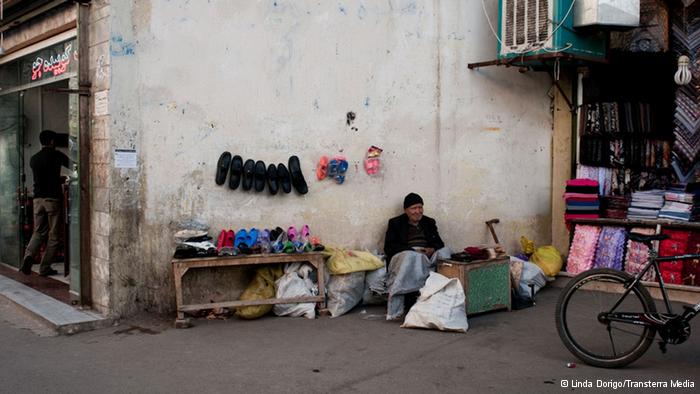
A street vendor at the bazaar of Mashhad presents his goods to passers-by. Many of those peddling their wares struggle to make ends meet. -
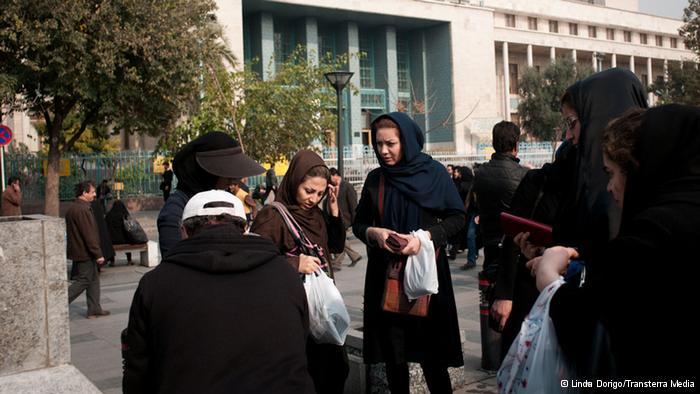
Bozorg bazaar, the main bazaar in south Tehran. Banking operations with foreign countries are impossible due to the sanctions. Iranians have to use Dubai-run banks or Turkish banks for their money transactions. -
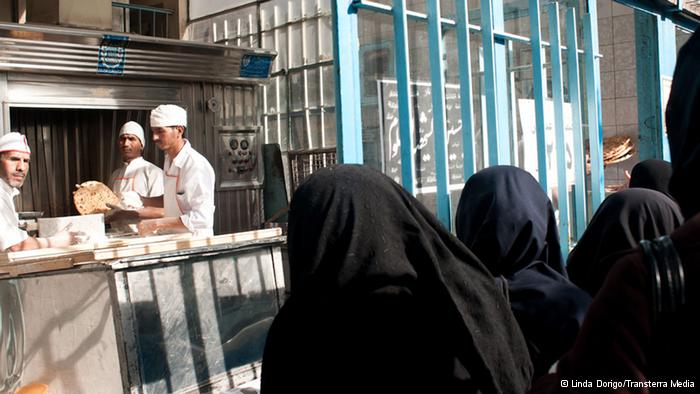
Women queuing to buy bread at a bakery in Mashhad. Many Iranians have changed their shopping habits, preferring to buy at the cheaper supermarkets rather than going to more expensive shops. -
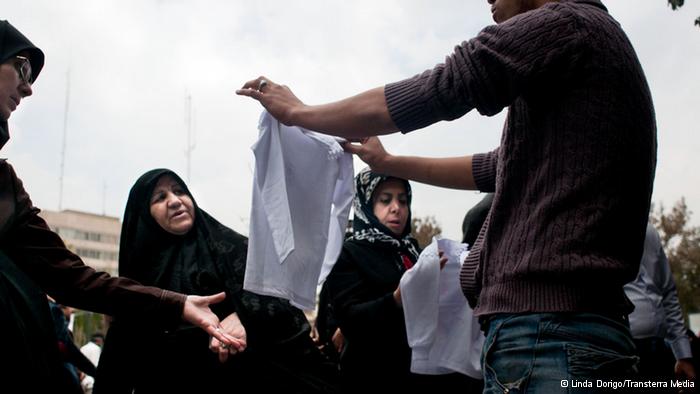
Because many commodities are not available on the official market due to sanctions, the black market is thriving, providing Iranians with items that are in demand. -
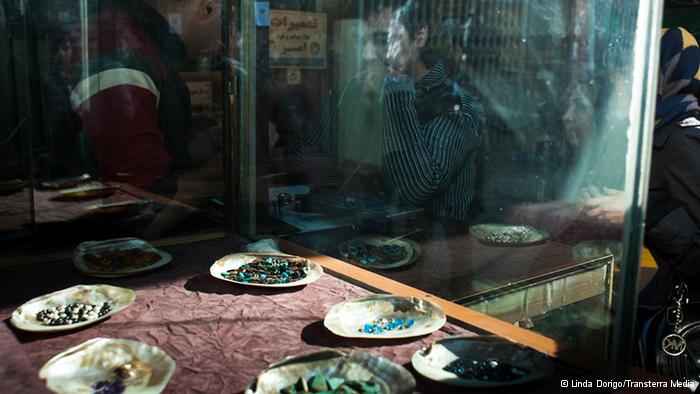
An exchange shop for gemstones in Tehran. Many Iranians are investing in gemstones because the devalutation of the Rial, the Iranian currency, has left it practically worthless. -
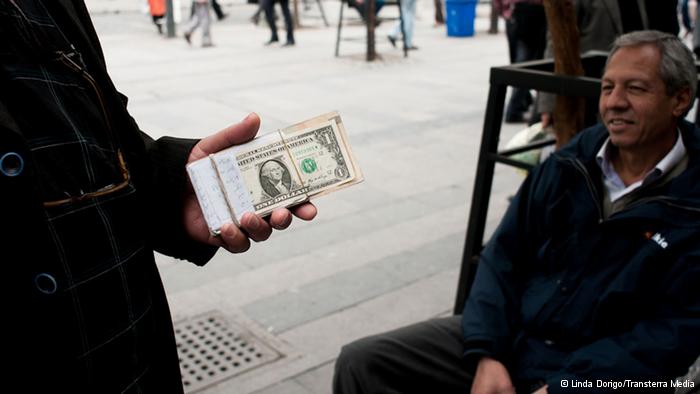
Because of the sanctions, many people resort to exchanging dollars and euros illegally on the streets of the capital, Tehran. -
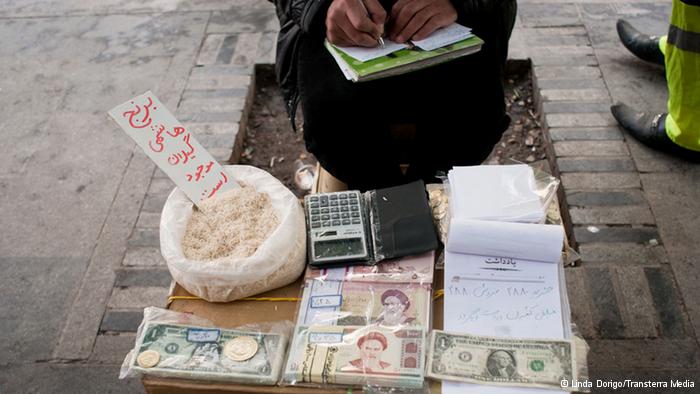
One of the most urgent problems facing the Iranian economy is the devaluation of the Rial. Over the past two years, it has lost nearly two-thirds of its value. Conservative estimates put inflation at 40 per cent. -
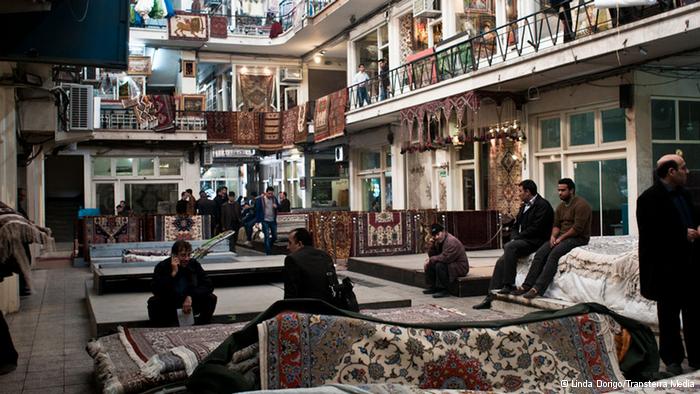
Bozorg bazaar, the main bazaar in south Tehran. The carpet industry is a very important pillar of the Iranian economy. However, export restrictions relating to sanctions are hitting profits hard.
https://qantara.de./en/node/6563
Link
To all image galleries
